Gratitude for life, amazing people, beautiful views and sunsets, these would be some of the words to summarise my experience volunteering in Belize for the 2 weeks I was part of the marine conservation project through Reef Conservation International. But the best feeling I had while volunteering? The feeling of empowerment, the proof that people can come together for a common cause to bring about a change. This is, in my opinion, a very important thing to remember, especially in current times, and especially when it comes to causes which are so very important to help us make this world a better place.
My first day started with an hour-long boat ride to the small island where the project was based, right in the middle of the ocean with equal distances to Belize, Honduras and Guatemala. When we started docking, I was amazed at how small the island really was and how beautiful the surroundings were. On a clear day, such as then, you could see the peaks of Honduras, as pictured below! Right off the bat, we had a briefing about Reef CI, how it started, their goals, what we will be doing, the daily schedules and the challenges currently faced by Reef CI as well as marine conservation efforts as a whole.
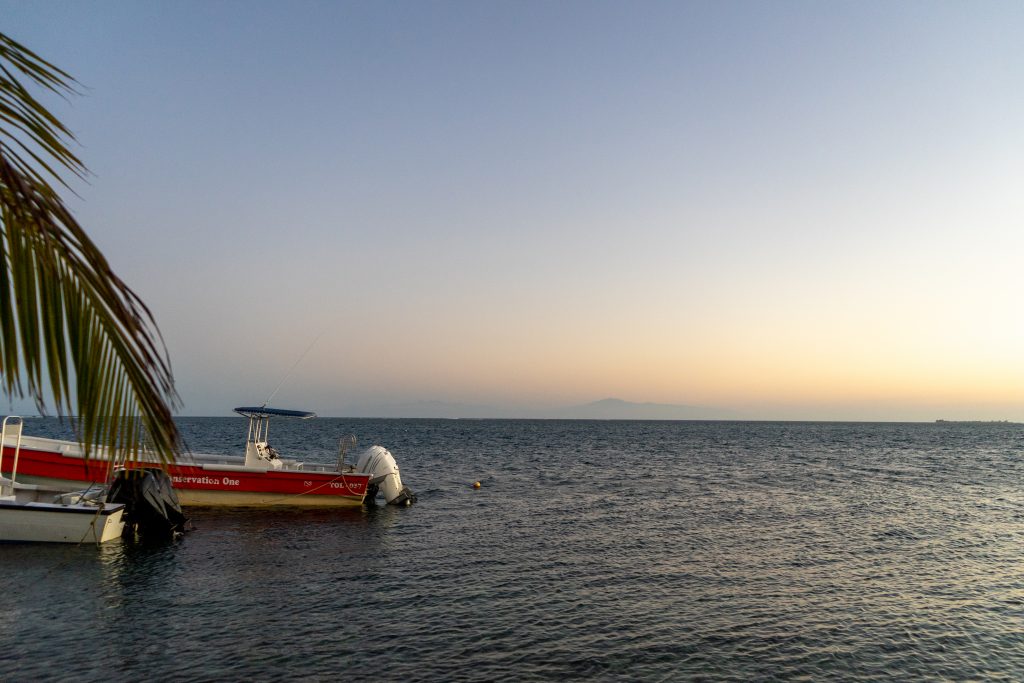
To explain each day singularly would really take a very long time, and summarising them would do the project no justice… So, I will explain the different jobs and dives (of which we did 3 per day!) we have been doing and their importance to the cause.
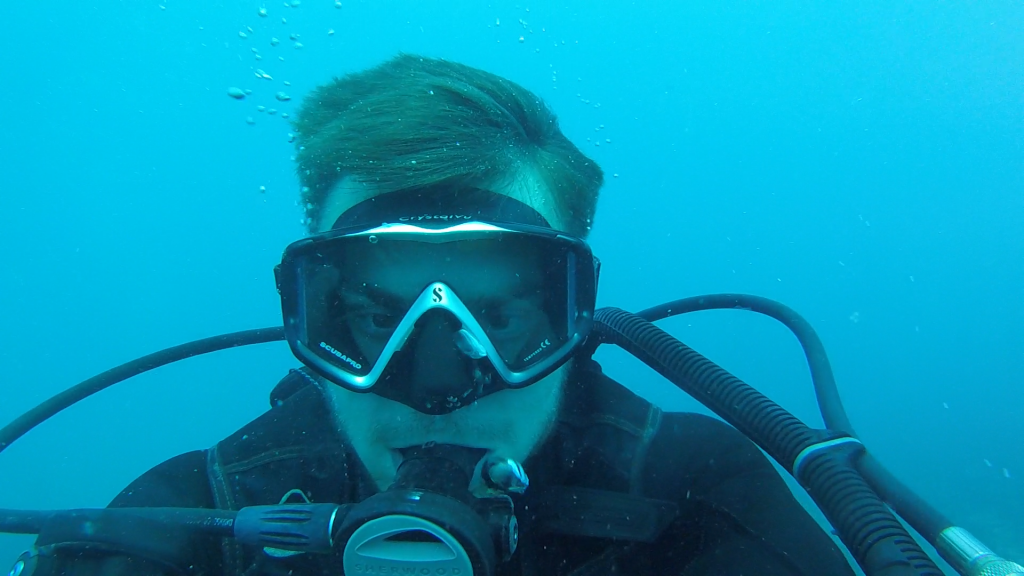
Part of the problem in the degradation of reefs lies in invasive species, of which Lionfish are the biggest for the Caribbean… These fish which are native to South East Asia and the Red Sea are pests in the Caribbean, believed to have been introduced either by accident when Hurricane Andrew hit Florida in 1992 and aquariums where Lionfish were kept were shattered or were purposefully released by owners. The problem here is that Lionfish have no natural predators in the Caribbean, so they swim around unchecked. This is a huge issue as Lionfish reproduce very quickly (at a rate of 50,000 eggs every 3 days!) and they feed on fishes crucial to the health of the reefs such as parrotfish. Lionfish can expand their stomachs 30 times their size to accommodate for food – so they are very greedy!
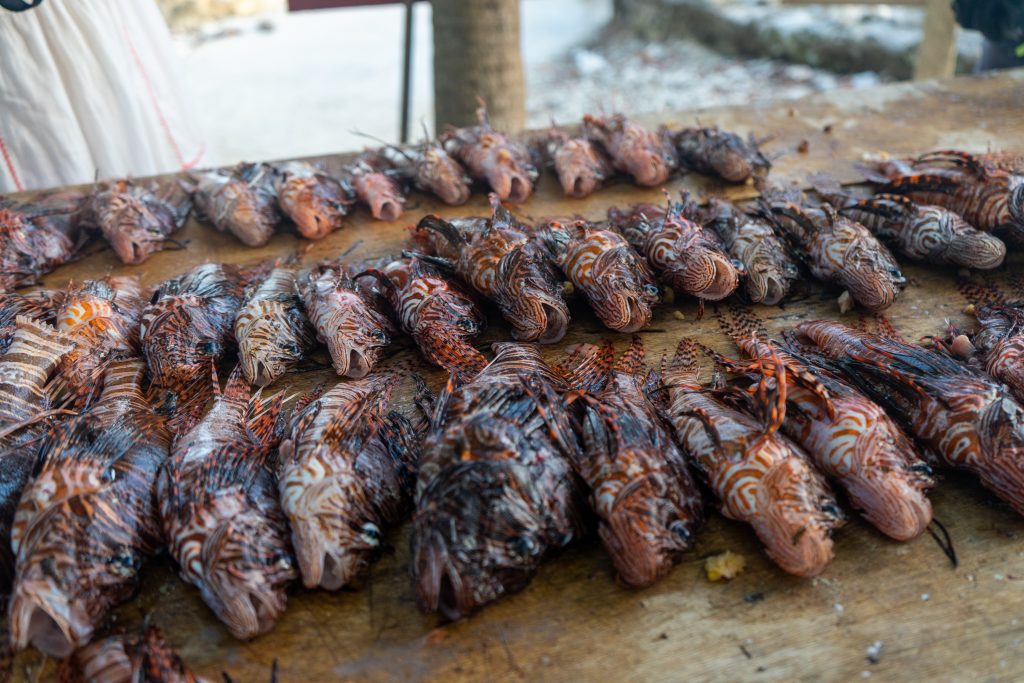
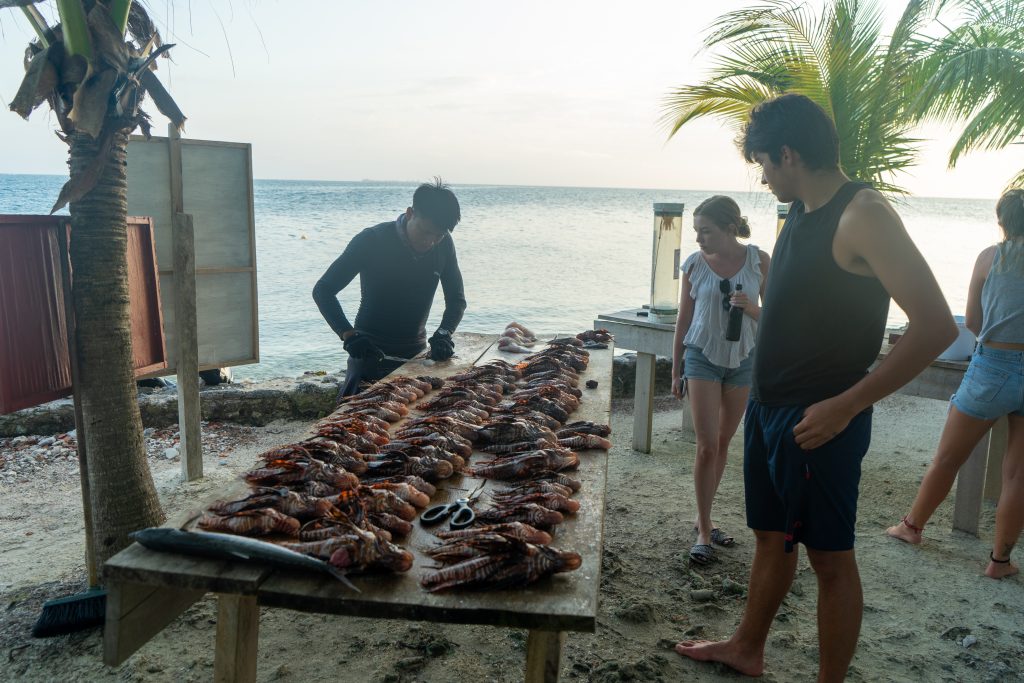
One of the ways to reduce their impact is the promotion of Lionfish spearing around the Caribbean. This is allowed by the governments to help reduce their negative impact on the reefs although these efforts will not cause the pest to disappear as a whole but rather help buy some crucial time. It helps that Lionfish are a decently tasting fish to use in dishes. After spearing the Lionfish and bringing them on land, we would take their measurements, note down what they have been eating and other crucial records, which are submitted to local authorities to help produce national statistics and estimate overall Lionfish populations and their impacts.
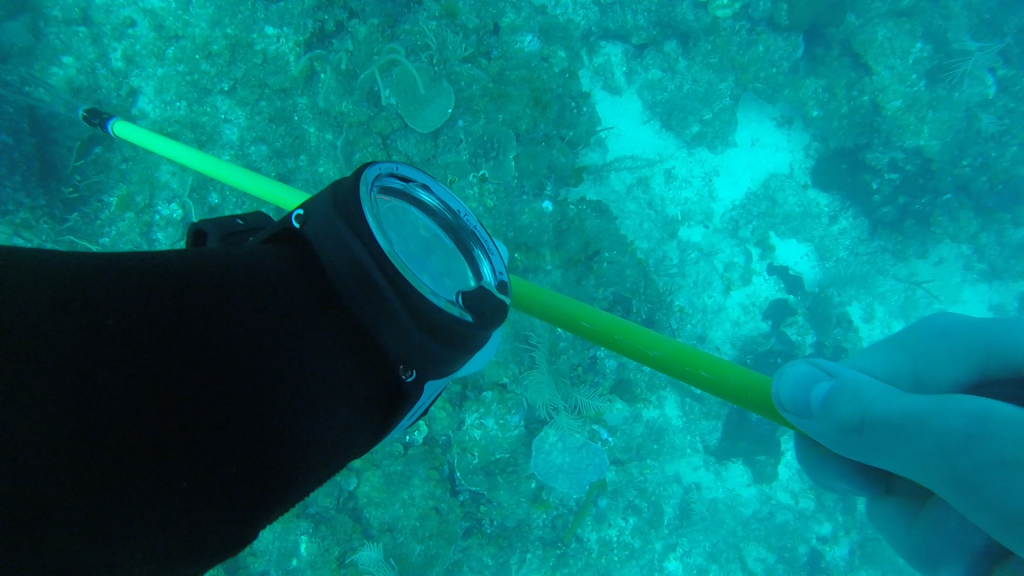
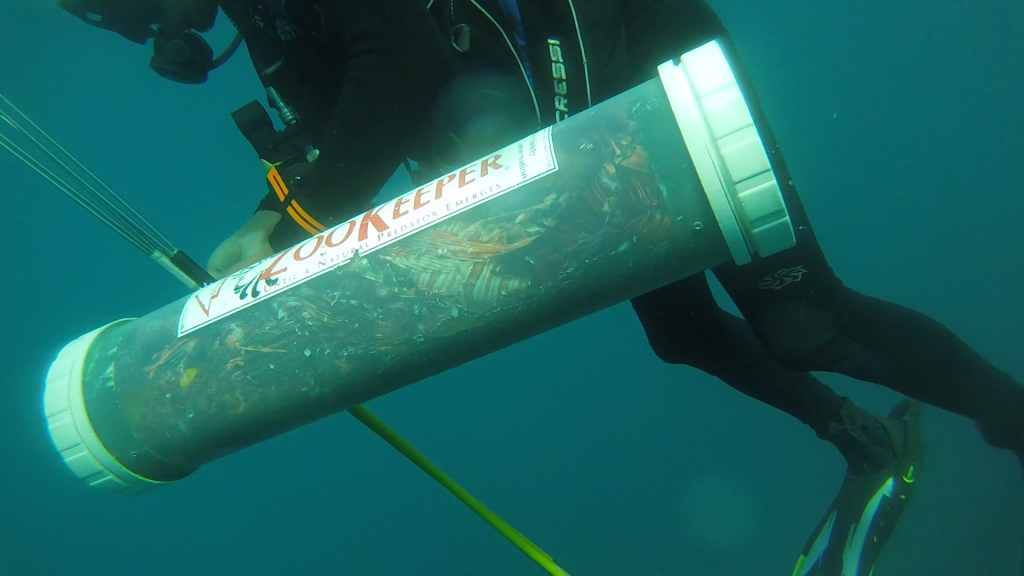
Other methods of marine conservation we carried out relating to the species inhabiting them were conch surveys and lobster surveys. Not only are conch and lobster very important to local communities as a means to earn a living, these are also natural sources of food for many local predators. We carried out these surveys in a way of sampling a given part of specific dive sites and taking records of their sizes and overall health. This allows to make some calculated guesses, as well as notice patterns, as to whether the population of these species is increasing or decreasing and helps the local authorities with managing licenses for fishermen.
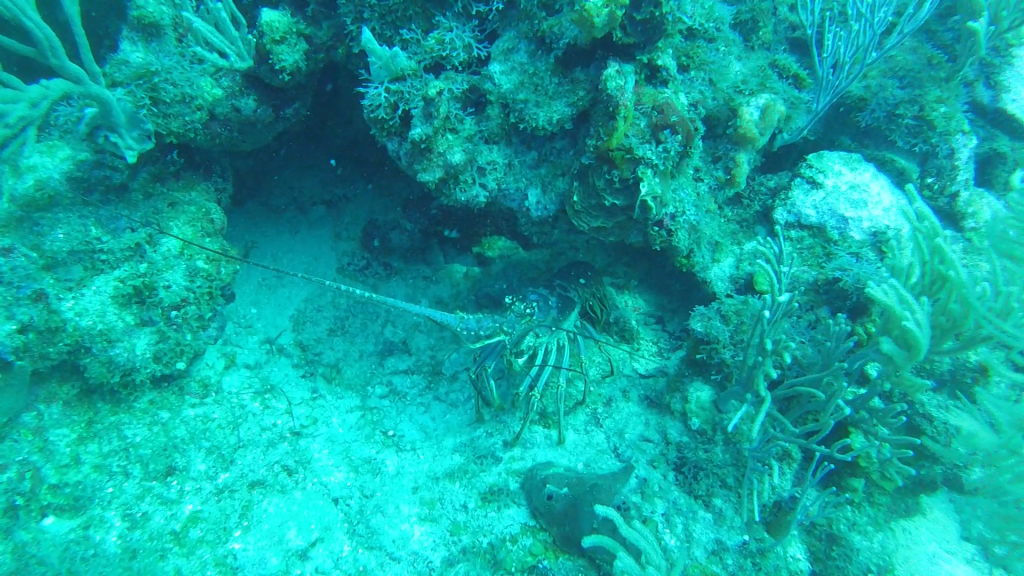
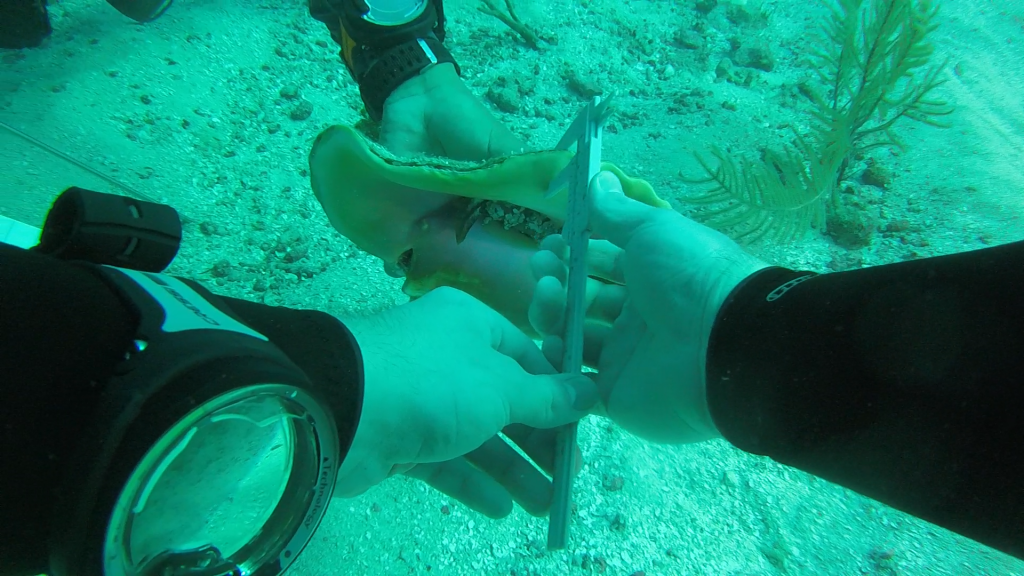
When it comes to sustainability and marine conservation, I think it’s no secret that plastics are a huge issue. I was really surprised when we made our way to one of the bigger islands in the area, home to some turtles which lay their eggs there, and saw the amount of microplastics (especially Styrofoam!) intertwined amongst the bushes and sand on the beach. As you can imagine, collecting this was very difficult, as it seemed you would have had to literally remove all the surface sand in order to actually make some impact. This made the island clean up a real wake up call. Most of us use plastic in our daily lives (and it is so difficult not to as a consumer) but do we really think about where it ends up and the impact it has? It really is EVERYWHERE, and the truth is that developing countries and local communities are most impacted by it – and not necessarily because they are the biggest users or producers of it. I was further saddened when we actually saw a plastic bag stuck on a coral while on one of our dives about 14 metres down… I think I don’t need to emphasise on the negative impact plastics have on our ecosystems, food chain and the planet as a whole.
I can really say this trip had and will continue to have a huge impact on my life and the choices that I make in the future. I will be continuing my efforts however much I can and keep spreading the word about the importance of sustainability. If there is one message, I would like to leave everyone with, it is this – and it is with a smile as I know we all have the power to make a change when we come together.
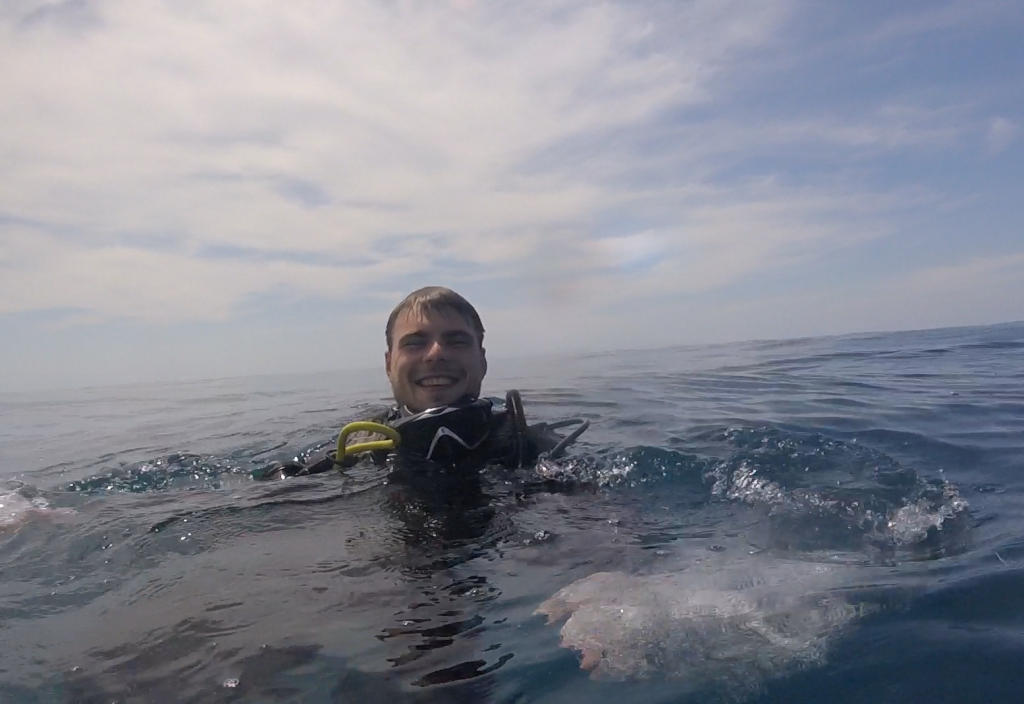
It seems as though a lot of the challenges are due to politics as well as lack of financial support – Belize being a developing economy, it is no surprise that conservation rarely takes precedent to financial growth opportunities which often come at a cost to the local people and the environment. Therefore, I think it is so important for businesses to take an approach where decisions which could affect local communities, directly or indirectly, are really well thought out. For people who have that authority, I would urge that sustainability efforts are on the agenda. Another way we have the power to help is to use our consumer choices and the power of spending wisely. Simply by buying products which are sustainable and avoiding those which aren’t ethically sourced we are already showing businesses and governments that there is a demand for sustainability in consumer products. I think lastly, what we need to realise and really keep in mind is that thinking in a way of “I’m just one person, what impact do I have” is going to do no good. The truth of the matter is, we have a lot of power when we stand together because individually we may be a drop but when we stand together, we are an ocean and oceans are a powerful force.

